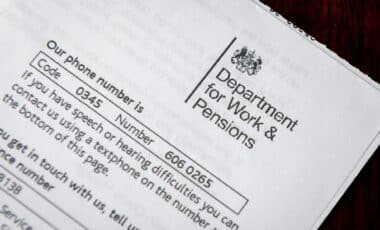Millions of UK workers could face a significant reduction in their annual income if proposed reforms to salary sacrifice schemes go ahead, with experts warning of a potential £560 hit per person and employers facing added costs.
The HMRC, which has revealed little publicly on the issue so far, quietly commissioned research that explores the possible withdrawal of tax and National Insurance advantages currently tied to these arrangements.
DevonLive reports that the findings indicate widespread concern among employers and experts alike, as the potential changes would significantly affect take-home pay, retirement savings behavior, and the broader incentive structure for workplace pensions.
Government Research Signals Potential Policy Shift
An HMRC-commissioned study has revealed that the Treasury is actively exploring scenarios that would reduce or remove the tax and National Insurance (NI) advantages of salary sacrifice arrangements. These schemes allow employees to exchange part of their salary for non-cash benefits like workplace pensions, thus lowering their taxable income.
The report, carried out last year with 51 employers and published quietly, tested reactions to three possible reforms. Each scenario involves reducing the attractiveness of salary sacrifice, a system used by nearly half of UK companies to help employees save for retirement while lowering tax and NI liabilities.
Financial Impact of Proposed Reforms
Under the most comprehensive option, where both tax and NI exemptions are scrapped, a worker earning £35,000 a year would lose £560 annually, while their employer would be liable for an additional £241.
A second proposal would remove only NI relief, still costing employees over £200 per year, with employers bearing a similar burden. A third, more limited option would cap NI relief only on contributions exceeding £2,000, targeting higher earners and potentially discouraging larger pension contributions.
Employer Reactions and Expert Concerns
Feedback from the 51 employers consulted was largely negative. Many warned that these reforms would “eliminate the benefit” of offering salary sacrifice altogether.
Some firms currently return NI savings to employees, while others retain them to support broader compensation strategies.
Sir Steve Webb, former pensions minister and now a partner at LCP, said:
It is very revealing that HMRC has paid for research into the likely response from employers if salary sacrifice for pensions were to be scaled back.
Although the research was commissioned under the previous government, the desire to raise additional revenue is, if anything, even more acute today.
With a Chancellor reportedly looking to make up a multibillion-pound hole in the public finances in her autumn Budget, this research suggests that changes to salary sacrifice are firmly on the agenda, and likely to be considered as a potential revenue-raising measure.
Jonathan Watts-Lay, of Wealth at Work, also expressed concern:
It would be bad for everyone. Whether they just do National Insurance or National Insurance and income tax, the fundamental of all those scenarios is that [people] have less money going into their pension unless they up their contributions.
You’re basically saying to someone you either need to pay more money, or you carry on and your pot will be smaller when you get to retirement.There’s no positive impact of it. They either take the pain, or they take the pain when they get to retirement.
Growing Use Among Higher Earners and Fiscal Pressures
The proposals come as higher earners increasingly use salary sacrifice to reduce taxable income and avoid breaching thresholds linked to punitive tax rates and benefit loss.
For instance, earning just over £100,000 can trigger a 60% effective tax rate and loss of 30 hours of free childcare entitlement.
In parallel, the National Institute of Economic and Social Research (NIESR) estimates the Treasury faces a £30 billion shortfall — pressure amplified by Labour’s benefit pledges, such as reviewing the two-child benefit cap and restoring universal winter fuel payments for pensioners.
As a backbencher, Chancellor Rachel Reeves once supported scrapping higher-rate pension tax relief in favor of a flat 33% rate — a position that has raised concerns she may still back reforms targeting pension-related incentives.
Official Response and Broader Implications
A Treasury spokesperson responded:
These claims are totally speculative. HMRC regularly commissions independent research on all aspects of the tax system.
We are committed to keeping taxes for working people as low as possible.
Despite the official stance, the timing and scope of the research indicate that a reform of salary sacrifice schemes remains under consideration, likely as part of the autumn Budget deliberations.









